Last month in a preface to a worldwide perspective on environmental problems, the National Geographic wrote, “On April 22nd, 1970, the first Earth Day, 20 million participants showed how much Americans cared about environmental issues. This April 22nd organizers of Earth Day 1990 hope to show that this interest has expanded into concern for the future of the whole planet”. In the intervening years, newspaper reports on environmental issues have increased dramatically. All things “Green” have become popularly accepted topics. Conservationists are indeed heartened by this new respectability. Also, there seems to be a shift from dwelling on destruction and despair to hope, possible solutions and practical advice; so that you too can lend a helping hand to the global situation. Jay D. Hair, president of the American National Wildlife Federation, remarks, “I think we really are, finally, at the dawn of an environmental renaissance and that 1990 must begin the decade of the environment.”

A number of reports here have recently shown positive responses to problems of the environment which Athenians face and those living in suburbs away the coast. Last spring, oil slicks of unknown origin were reported off Glyfada and on the east side of Attica at Lavrion. Oil-dispersing chemicals were used and apparently with effect. Nonetheless these chemicals can themselves cause damage to marine life. In growing mumbers each year volunteers take to the beaches to pick up rubbish. Boy and Girl scouts, for example, collected in one swoop approximately 560 cubic metres of litter from Marathon and Nea Makri.
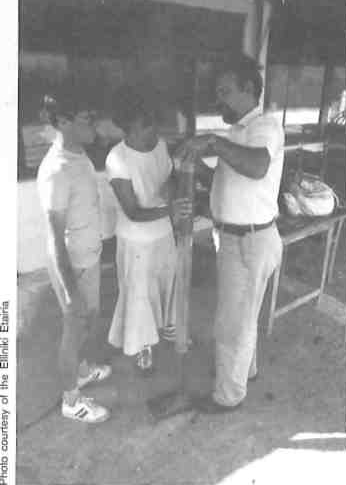
Plastic trash is found in the highest density and this, of course, is most worrisome because it is not biodegradable. At Legrena near Sunion 250 bags of rubbish were collected, nearly all of the litter left by day trippers and campers. Fishermen and yachtsmen, however, are also to blame. Every year, however, more schools involve themselves in cleaning up beach and forest litter and the children involved today are the more responsible mature citizens of tomorrow.
Politicians and economists too, are beginning to react to Green issues in a serious and responsible manner. European Green Parties have consistently won victories since 1981 in Belgium, and since 1983 in Germany. Now Greece has a member of the alternate Ecology Party sitting in Parliament, Marina Dizi. With the US contributing most of the research and published work behind the development of worldwide Green politics and philosophy, it has indeed become a universal movement, though as yet without a coherent strategy.
All Greeks are familiar with Athens’ air pollution which at times spreads along coastal areas and north to the foothills of Pendeli and Parnitha. Dangerously high levels of nitrogen dioxide and other pollutants which tend to aggravate heart and lung complaints and cause sore throats, dizziness and headaches, have been registered with growing frequency. In such a serious health situation related as well to problems of acid rain and global warming, it is obvious that more action needs to be taken. Restricting traffic flow, reducing factory fuel consumption and banning mazout in the heating of buildings are not enough. Other solutions being growingly applied in the US and European countries are lead-free petrol and three-way catalytic converters which are fitted to exhaust systems. Industry must also be forced to clean up dangerous emissions, if necessary by introducing specific legislation. Are these improvements to be included in “a much more effective and radical plan” which is being discussed now by the government and its cost estimated by the three economic ministers? A “Smog Tax” has been suggested which will raise an estimated 100 billion drachmas needed to implement the plan.
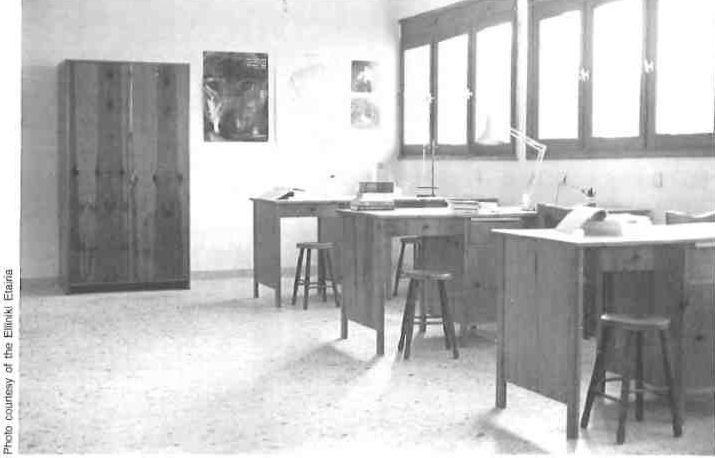
Many Greeks remain unaware of existing organizations that are concerned with the environment. There are however a number of small groups involved with specific subjects or areas of Greece. One effective voice in Athens that deals with more general aspects and is influential with the government is the Elliniki Etairia whose president is Michael Skoullos.
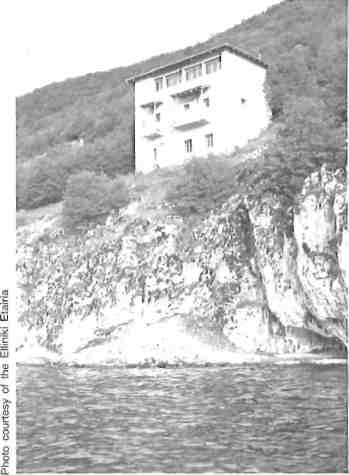
In its own preamble the Elliniki Etairia, “was founded in 1972 and is a registered non-profit organization. Its aims are to enhance the interest of Greeks in their cultural heritage and to sensitize them to the importance of maintaining the ecological balance and participating actively in the preservation of the environment. To achieve its aims, the Elliniki Etairia depends on the voluntary contribution of know-how, work and experience of its members and friends. The activities to date may be divided into six major areas; to protect the Greek cultural heritage through restoration projects, to contribute to research for the protection of the natural environment, to increase public awareness in matters pertaining to the protection of the environment, through campaigns to further environmental education, to cooperate with the state and political parties and to encourage international action”.
As Mr Skoullos explains, “many projects have been established or are underway, and over 200 debates and discussions have been and will continue to be organized. Some of these have been international seminars dealing with EC directives and modern conservation techniques”. One functioning project is that of Prespa National Park which touches the borders of Yugoslavia, Greece and Albania. Mr Skoullos described the project as one of the most important, specially protected areas in Europe. At the moment, an important enterprise of the Elliniki Etairia is the restoration of a neoclassical Othonian house in Plaka which will function as a center for the protection of the environment and the Greek cultural heritage. 35.000.000 drs are being raised by donation to provide space for the functioning of the smaller conservation groups and giving the public a focal point for communication. This building at 28 Tripodon Street will become the link, so long lacking, enabling the valuable interaction of conservation groups and the public. Here it will be possible to carry out research, ask questions, or simply to find out about current environment affairs from its information services. It will be an ideal venue for voluntary organizations to promote issues and to gain wider acknowledgement and assistance.
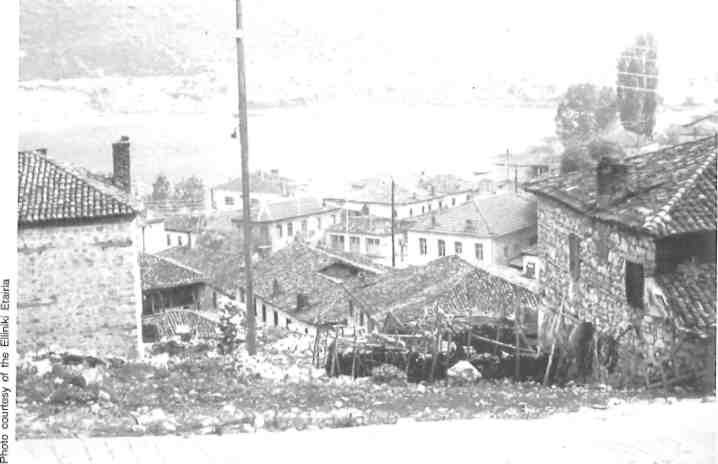
Bridging this gap may well help to ameliorate the problem that the public generally does not consider life in broader implications, or believes that the implications are so vast that it is beyond individual capacity to do anything. National Wildlife Foundation president Jay D. Hair counters, “Let the words of Edmund Burke strengthen our resolve: ‘Nobody makes a greater mistake than he who did nothing because he could only do a little’.
An example of short – sightedness in Greece can be seen on the island of Zachynthos. There is a very real possibility that the Loggerhead Turtle Caretta caretta will become extinct in the Mediterranean. While it remains the last major nesting habitat for the Loggerhead turtles in the Mediterranean, Zachynthos relies heavily on tourism for its income . If Zachynthos could be given incentives to work with the Sea Turtle Protection Society then they would better understand the measures to be taken and could give helpful suggestions. Instead, they have become defensive and worry that they will economically suffer.
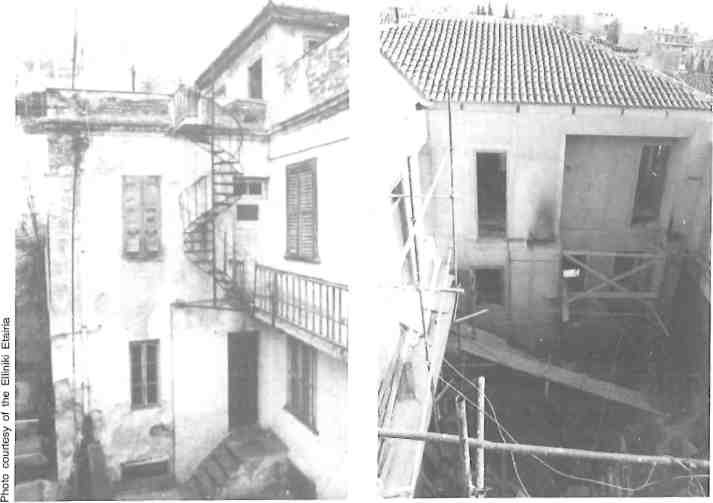
In a country like Greece where personal initiative accounts for so much, it is relevant that the drive to preserve Caretta caretta has been almost entirely led by one woman, Lily Venizelou. Now, finally, the turtle is getting attention and support from international environmental agencies.
With care and the right sort of publicity, Zachynthos could become the haven of the turtle and draw environmentally aware tourists. Thus, a balance could be created and all would gain from a cleaner, more interesting natural environment.
Perhaps there is cautious hope for the Mediterranean, too. Not so long ago, in the 60s and 70s, the sea was described as dying. Since then the United Nations Environment Programme (UNEP) has created and enforced the Mediterranean Action Plan (MAP) with the active participation of all the Mediterranean states except Albania. The Barcelona Accords are being followed up specific programs with practical, obtainable ends. There are now five protocols in operation: control of dumping of waste from ships and aircraft; cooperation in combating pollution by oil and other harmful substances in cases of emergency; curtailment of pollution from land-based sources; designation of specially protected areas; and exploration and exploitation of the continental shelf, sea-bed and its sub-soil.
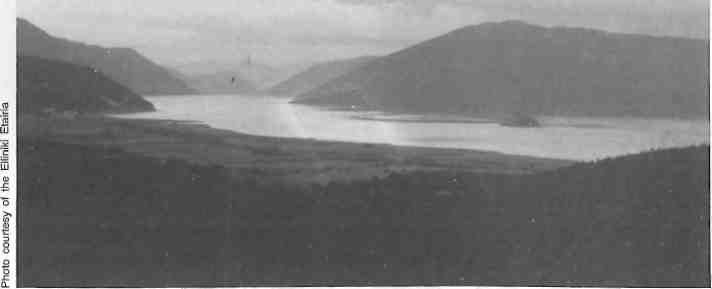
MAP and its, continuing long term projects are considered today for others UNEP states. “The Mediterranean was the first large-scale project to demonstrate that the decisions of the 1972 Stockholm Conference could be transformed into meaningful action. The time was ripe and the governments were ready to set aside their differences in interest of their common heritage and the future of their people”.
Perhaps it is time for the people to put aside their party differences and consider the best, broad interests for themselves, their children, their neighbors and the plants and animals we share Earth with. For our health and happiness are directly dependent upon the health of the world. It is up to each and every one of us to make the conscious decision and effort to change our life styles to accommodate nature. It will make a difference.







